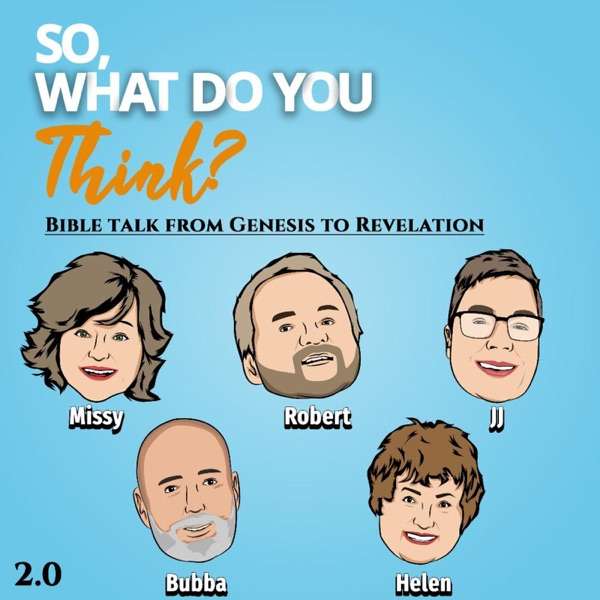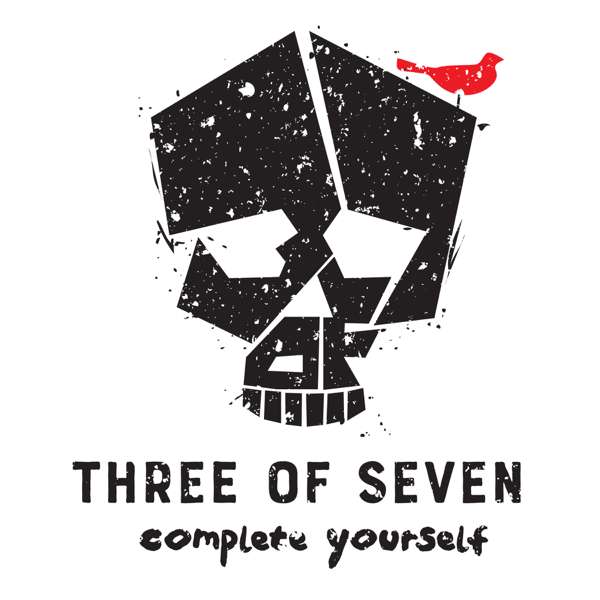Slavery did not end in the nineteenth century—it persists today, hidden in global supply chains, religious justifications, and systems of power. Kevin Bales and Michael Rota join Evan Rosa to explore modern slavery through history, psychology, and theology, asking why it remains so difficult to see and confront.
“It’s time some person should see these calamities to their end.” (Thomas Clarkson, 1785)
“There are millions of slaves in the world today.” (Kevin Bales, 2025)
In this episode, they consider how conscience, power, and religious belief can either sustain enslavement or become forces for abolition. Together they discuss the psychology of slaveholding, faith’s complicity and resistance, Quaker abolitionism, modern debt bondage, ISIS and Yazidi slavery, and what meaningful action looks like today.
https://freetheslaves.net/
––––––––––––––––––
Episode Highlights
“There are millions of slaves in the world today.”
“Statistics isn’t gonna do it. I need to actually show people things.”
“They have sexual control. They can do what they like.”
“Slavery is flowing into our lives hidden in the things we buy.”
“We have to widen our sphere of concern.”
––––––––––––––––––
About Kevin Bales
Kevin Bales is a leading scholar and activist in the global fight against modern slavery. He is Professor of Contemporary Slavery at the University of Nottingham and co-founder of Free the Slaves, an international NGO dedicated to ending slavery worldwide. Bales has spent more than three decades researching forced labor, debt bondage, and human trafficking, combining academic rigor with on-the-ground investigation. His work has shaped international policy, influenced anti-slavery legislation, and brought global attention to forms of enslavement often dismissed as historical. He is the author of several influential books, including Disposable People and Friends of God, Slaves of Men, which examines the complex relationship between religion and slavery across history and into the present. Learn more and follow at https://www.kevinbales.org and https://www.freetheslaves.net
About Michael Rota
Michael Rota is Professor of Philosophy at the University of St. Thomas in Minnesota, where he teaches and researches in the philosophy of religion, moral psychology, and the history of slavery and religion. His work spans scholarly articles on the definition of slavery, the moral psychology underlying social change and abolition, and the relevance of theological concepts to ethical life. Rota is co-author with Kevin Bales of Friends of God, Slaves of Men: Religion and Slavery, Past and Present, a comprehensive interdisciplinary study of how religions have both justified and resisted systems of enslaving human beings from antiquity to the present day. He is also the author of Taking Pascal’s Wager: Faith, Evidence, and the Abundant Life, an extended argument for the reasonableness and desirability of Christian commitment. In addition to his academic writing, he co-leads projects in philosophy and education and is co-founder of Personify, a platform exploring AI and student learning. Learn more and follow at his faculty profile and personal website https://mikerota.wordpress.com and on X/Twitter @mikerota.
––––––––––––––––––
Helpful Links And Resources
Disposable People by Kevin Bales
https://www.ucpress.edu/book/9780520281820/disposable-people
Friends of God, Slaves of Men by Kevin Bales and Michael Rota
https://www.ucpress.edu/book/9780520383265/friends-of-god-slaves-of-men
Free the Slaves
https://www.freetheslaves.net
Voices for Freedom
https://voicesforfreedom.org
International Justice Mission
https://www.ijm.org
Talitha Kum
https://www.talithakum.info
––––––––––––––––––
Show Notes
– Slavery named as a contemporary moral crisis obscured by twentieth-century abolition narratives
– Kevin Bales’s encounter with anti-slavery leaflet in London, mid-1990s
– “There are millions of slaves in the world today … I thought, look, that can’t be true because I don’t know that. I’m a professor. I should know that.”
– Stories disrupting moral distance more powerfully than statistics
– “There were three little stories inside, about three different types of enslavement … it put a hook in me like a fish and pulled me.”
– United Nations documentation mostly ignored despite vast evidence
– Decades of investigation into contemporary slavery
– Fieldwork across five regions, five forms of enslavement
– Kevin Bales’s book, Disposable People as embodied witness with concrete stories
– “Statistics isn’t gonna do it. I need to actually show people things. There’s gonna be something that breaks hearts the way it did me when I was in the field.”
– Psychological resistance to believing slavery touches ordinary life
– Anti-Slavery International as original human rights organization founded in U.K. in 1839
– Quaker and Anglican foundations of abolitionist movements
– Religion as both justification for slavery and engine of resistance
– Call for renewed faith-based abolition today
– Slavery and religion intertwined from early human cultures
– Colonial expansion intensifying moral ambiguity
– Columbus, Genoa, and enslavement following failed gold extraction
– Spanish royal hesitation over legitimacy of slavery
– Las Casas’s moral conversion after refusal of absolution
– “He eventually realized this is totally wrong. What we are doing, we are destroying these people. And this is not what God wants us to be doing.”
– Sepúlveda’s Aristotelian defense of hierarchy and profit
– Moral debate without effective structural enforcement
– Power described as intoxicating and deforming conscience
– Hereditary debt bondage in Indian villages
– Caste, ethnicity, and generational domination
– Sexual violence as mechanism of absolute control
– “They have sexual control. They can beat up the men, rape the women, steal the children. They can do pretty much what they like.”
– Three-year liberation process rooted in trust, education, and collective refusal
– Former slaves returning as teachers and organizers
– Liberation compared to Plato’s allegory of the cave
– Post-liberation vulnerability and risk of recapture
– Power inverted in Christian teaching
– “The disciples are arguing about who’s the greatest, and Jesus says, the greatest among you will be the slave of all… don’t use power to help yourself. Use it to serve.”
– Psychological explanations for delayed abolition
– The psychological phenomenon of “motivated reasoning” that shapes moral conclusions
– “The conclusions we reach aren’t just shaped by the objective evidence the world provides. They’re shaped also by the internal desires and goals and motivations people have.”
– Economic self-interest and social consensus sustaining injustice
– Quaker abolition through relational, conscience-driven confrontation
– First major religious body to forbid slaveholding
– Boycotts of slave-produced goods and naval blockade of slave trade
– Modern slavery as organized criminal enterprise
– ISIS enslavement of Yazidi women
– Religious reasoning weaponized for genocide
– “They said, for religious reasons, we just need to eradicate this entire outfit.”
– Online slave auctions and cultural eradication
– Internal Islamic arguments for abolition
– Restricting the permissible for the common good
– Informing conscience as first step toward action
– Community sustaining long-term resistance
– Catholic religious sisters as leading global abolitionists
– Hidden slavery embedded in everyday consumer goods
– “There’s so much slavery flowing into our lives which is hidden… in our homes, our watches, our computers, the minerals, all this.”
– Expanding moral imagination beyond immediate needs
– “Your sphere of concern has to be wider… how do I start caring about something that I don’t see?”
– “It’s time some person should see these calamities to their end.” (Thomas Clarkson, 1785)
––––––––––––––––––
#ModernSlavery
#FaithAndJustice
#HumanDignity
#Abolition
#FreeTheSlaves
Production Notes
- This podcast featured Kevin Bales and Michael Rota
- Edited and Produced by Evan Rosa
- Hosted by Evan Rosa
- Production Assistance by Noah Senthil
- A Production of the Yale Center for Faith & Culture at Yale Divinity School https://faith.yale.edu/about
- Support For the Life of the World podcast by giving to the Yale Center for Faith & Culture: https://faith.yale.edu/give

 Our TOPPODCAST Picks
Our TOPPODCAST Picks  Stay Connected
Stay Connected








